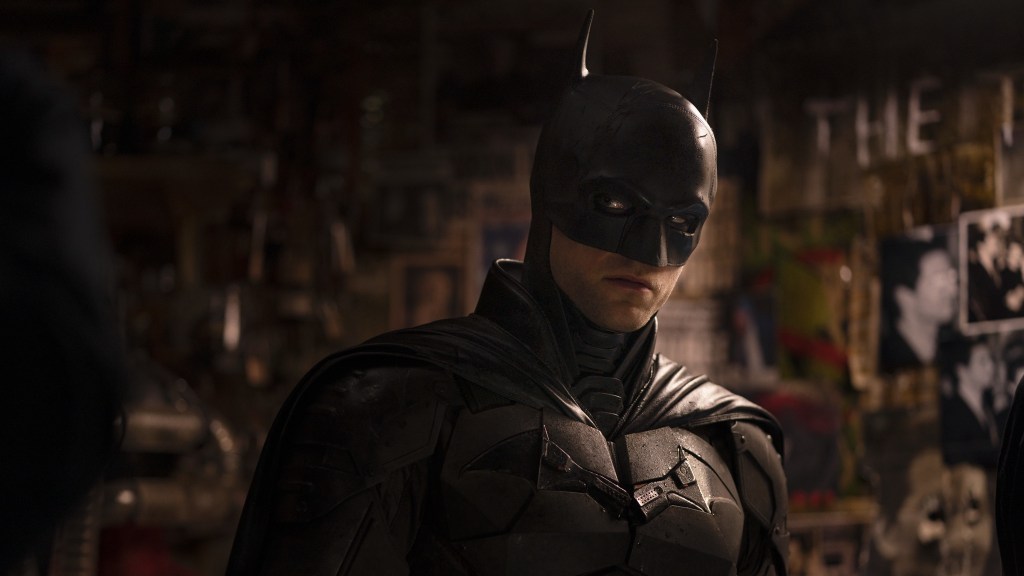At the end of 2024, DC fans finally got an update about Matt Reeves’ The Batman Part 2 but instead of inspiring excitement for moviegoers, the news was met with frustration. The eagerly anticipated sequel to The Batman was being pushed back once again, with the film now targeting an October 1, 2027, release date. That means that, should this release date hold, the sequel to the Robert Pattinson-starring film will open more than five years after the first film opened in theaters. And The Batman isn’t the only entertainment project that fans find themselves having to wait for. Television projects were also revealed to have long gaps between seasons in 2024, with House of the Dragon Season 3 not expected to arrive until mid-2026 making it two years between seasons and Euphoria’s third season won’t arrive until 2026 either, making it a four year wait between seasons.
Videos by ComicBook.com
These extended waits have started to become the norm when it comes to entertainment — especially television. But while this lag is being normalized, it didn’t used to be this way. Follow ups to movies and television series used to move at a faster pace with moviegoers often waiting just a year or so between sequels and television audiences in particular waiting mere months for new seasons that were longer than 8 or 10 episodes. That timely turnaround is something that entertainment needs to get back to. These long gaps between sequels and new seasons of television simply needs to end because audiences and projects are suffering the wait.

Before we jump into why these long delays and gaps need to end, it’s important to acknowledge and address some (very valid) reasons why delays sometimes happen. Most recently, the Covid pandemic led to a full production halt in Hollywood which, in turn, led to long delays. 2023 also saw both the SAG-AFTRA and Writers Guild of America strikes which slowed things down as well. But while that accounts for some delays, we’re now more than three years from Hollywood firing up again post-Covid and more than a year past the strikes and the delays continue.
[RELATED: These Batman Movie Delays Are a Bad Sign for the New DCU]
Delays Diminish Audience Interest
First and foremost, big delays and gaps between installments can result in a diminishing of audience interest and engagement thanks to a loss of focus. The reality is that there is a lot of things vying for audience attention. Not only are studios putting out a lot of content, but streaming services also offer viewers seemingly endless back libraries of things to consume. With so many things available to watch, a long wait to find out what happens from one season to the next can easily result in viewers not only losing interest in a series or story but forgetting what happened previously in the first place which then in turn feeds disinterest. An example of this is House of the Dragon. While viewership did steadily increase by the end of Season 2, the Season 2 premiere had a 22 percent viewership decline as compared to the first season.

On top of that, many viewers noted that so much time had passed since Season 1 that weren’t initially engaged or had outright forgotten things by the time Season 2 arrived. While some went back and re-watched Season 1, not every viewer did so and it’s not logical to assume that viewers will do that just for a season of television. When a story is delayed long enough, viewers either aren’t going to come back to find out what happened next or if they do, they might not be as engaged as perhaps they were when the series was new – or would be if the new season had arrived in a timely fashion.
Delays Can Fundamentally Change the Story
There is also the issue of long delays resulting in the general premise of a show or movie changing. This is likely to be the case with Euphoria. That series follows a teen drug addict (played by Zendaya) struggling to find her place in the world after leaving rehab. The story is set with the characters being in high school — and indeed, many of the topics explored in the series center around that high school setting and experience — but by the time we get to the third season in 2026, so much time will have passed that a time jump within the story is likely. This shift will fundamentally change elements of the show, meaning it will no longer be centered around teens and their high school experience. That could entirely change the trajectory of characters and stories viewers have become attached to as well as cause the show to fail to deliver on elements and plotlines from the end of Season 2, thus leaving fans hanging. This sort of thing is functionally asking for viewers to take on a completely new series, just one with characters they happen to know and it may have mixed or negative results not only in terms of audience satisfaction, but quality of the series as well.

These issues are also present when it comes to long delays for movie sequels. While some gaps between movies are generally understandable — think the one-year space between Avengers: Infinity War and Avengers: Endgame which had other installments of the MCU released between them that were pertinent to the story — other gaps make less sense and may be detrimental. Wicked is an example of this. The first part of that overall story hit theaters in November and while the story is split into two for time reasons (Wicked: Part 1 alone was nearly three hours long and Wicked: For Good is expected to have a similar length so a full version of both together would be incredibly long) why wait a full year? In this franchise’s case, both parts were filmed at the same time and there aren’t any movies or shows coming in between the two films that impact the story. A year-long delay doesn’t make sense and while the first film was hugely popular, will the audience return for part 2? A shorter, perhaps months-long gap makes more sense, letting the momentum from the first film carry into the second while also keeping the story fresh in the minds of audiences.
Delays for sequels that haven’t even been filmed yet, however, are an entirely different situation but also present major issues, such as is the case with The Batman. When that film was released in 2022, it was presented as a new approach to Batman, one that leans into him being a younger character newer on his journey but with The Batman 2 now not opening until 2027, Pattinson will be older than Christian Bale was at the end of his journey as Batman in Nolan’s The Dark Knight Trilogy — and that final appearance was of a seasoned vigilante, not someone just starting out. Will audiences even care about Pattinson’s Batman if we have to do a hard jump from new vigilante to something more seasoned? Will this story be as interesting now that Batman isn’t “young”? Will the universe The Batman began even be relevant with series like The Penguin coming in and telling their own stories set within that world?
Going even further than that, this large delay will also see a complete shift in DC’s overall entertainment universe take place before the film arrives. James Gunn’s DCU is set to kick off this summer with Superman and we could very well see a full shift in terms of what superhero movie audiences are looking for, tonally. The Batman Part 2 simply might not fit in this new landscape when it comes to viewer appetites or even DC’s vision for its live-action superhero offerings, especially with other Batman projects in the works. While that doesn’t mean The Batman Part 2 won’t happen, it might mean that a change in what’s expected could lead to audience apathy for this particular sequel – and studios simply don’t want that.
While it is unreasonable to ask for new seasons and sequels of things on demand because the creation process does take time, it is equally unreasonable to ask audience to wait years for continuations as well. We live in a culture where there is never a shortage of things to watch. Thanks to the constant churn of content as well as streaming offering viewers literal decades of entertainment – including complete series – all movies and television series no matter how they are released are competing with, well, everything for audience. By making viewers wait and wait and wait, studios aren’t creating better content; they’re just signaling that they don’t care about the audience experience. A story without momentum isn’t worth following and the long, momentum killing delays with movies and television need to stop before audiences finally walk away for good and entire IPs and franchises collapse under the weight of waiting.








